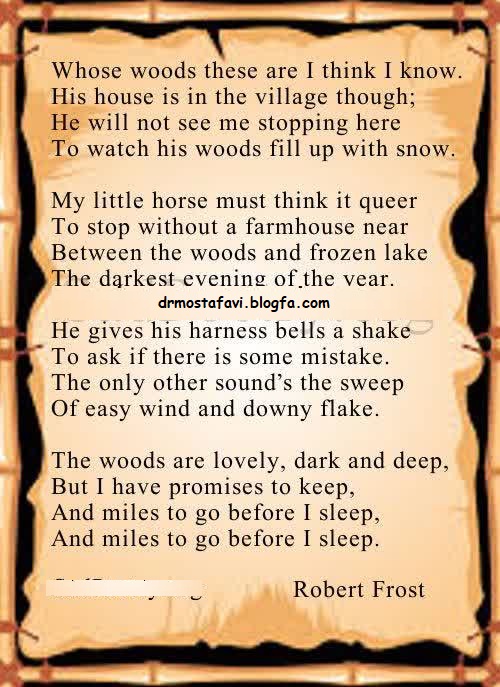But I have promises to keep and miles to go before I sleep
But I have promises to keep and miles to go before I sleep

Whose woods these are I think I know
His house is in the village though
He will not see me stopping here
To watch his woods fill up with snow
My little horse must think it queer
To stop without a farmhouse near
Between the woods and frozen lake
The darkest evening of the year
He gives his harness bells a shake
To ask if there is some mistake
The only other sound’s the sweep
Of easy wind and downy flake
The woods are lovely, dark and deep
But I have promises to keep
And miles to go before I sleep
And miles to go before I sleep
Poet: Robert Frost
 راهنمای آزمون ارشد و دکتری رشته علوم قرآن و حدیث+مطالب آموزنده قرآنی و حدیثی+علایق شخصی
راهنمای آزمون ارشد و دکتری رشته علوم قرآن و حدیث+مطالب آموزنده قرآنی و حدیثی+علایق شخصی